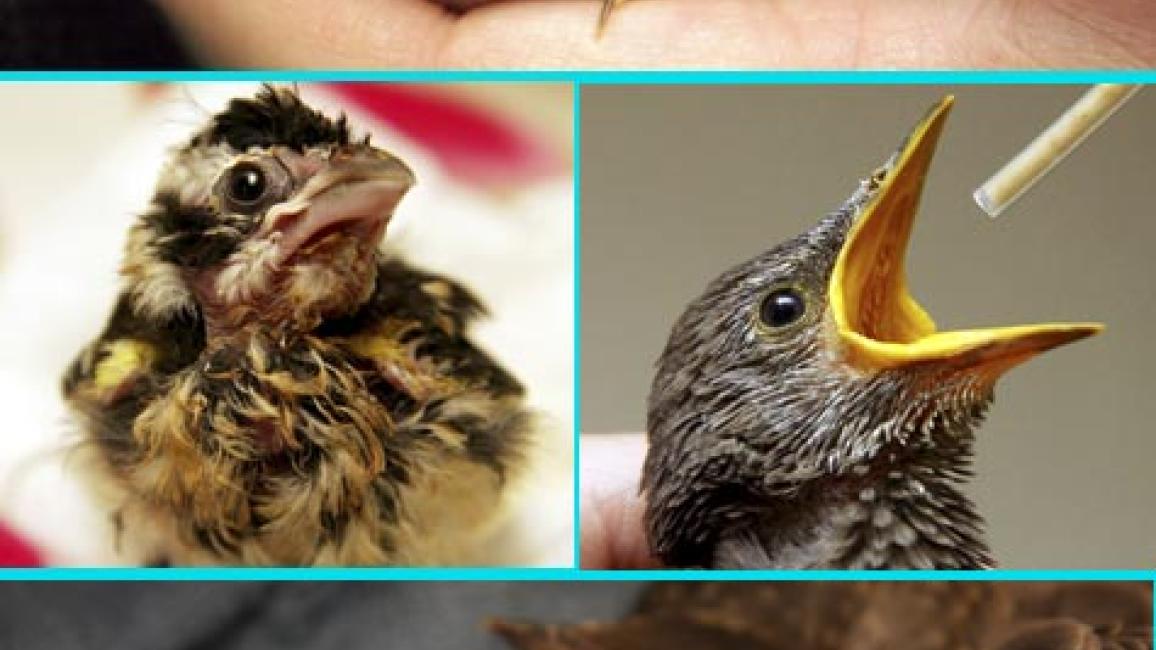Baby birds fallen out of their nests

Summer is a busy season at Wild Friends, the wildlife rehabilitation center at Best Friends. It’s the time of year when the staff receives baby birds who have fallen from their nests, not able yet to fly.
Kingbirds, evening grosbeak, and a mourning dove
In just the last few weeks, Wild Friends has been taking care of a host of them, including two kingbirds, an evening grosbeak, and a mourning dove—all of them found in people’s backyards.
One couple drove all the way from Cedar City (a good hour-and-a-half away) to deliver a kingbird to Wild Friends. The woman discovered the hatchling while she was out gardening in her yard, and knew the bird came from a nest high up in her poplar tree. She wanted to put the bird back in the nest—the best option in this situation—but the nest was just too high to reach. So she did the next best thing, and called one of her local wildlife rehabilitators, Wild Friends.
Baby bird care
For such small creatures, baby birds require a lot of attention and work. They must be fed periodically over the course of 15 hours every day, with the first feeding at 7 a.m. and the last at 10 p.m. This means that Carmen Smith, manager of Wild Friends, and her staff must take all the birds home at night to feed them.
The pay-off is well worth the effort, however—nothing less than raising a bird to fly and be released into the wild. Soon, these four baby birds will be taking wing in the great outdoors.
How to find a wildlife rehabilitator
Photo by Sarah Ause